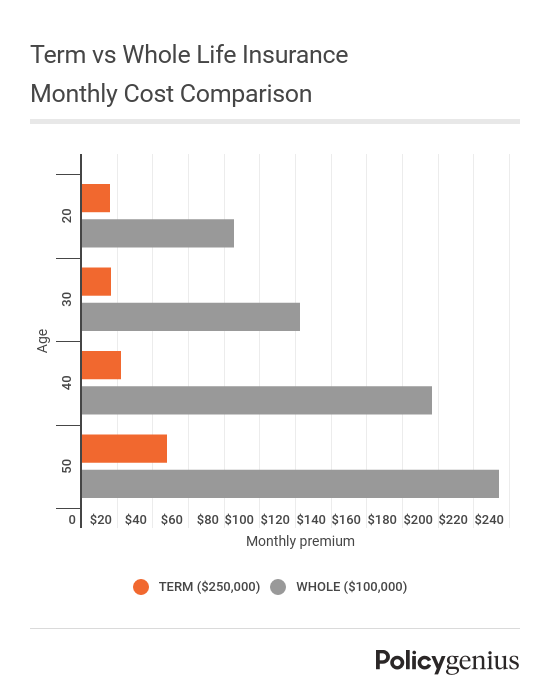Some Americans get insurance coverage by enrolling in a group medical insurance plan through their employers. Medicare provides health care coverage to senior citizens and the handicapped, and Medicaid has protection for low-income Americans. Medicare is a federal health insurance program for individuals who are 65 or older. Specific young people with impairments and people with end-stage renal illness may likewise certify for Medicare. Medicaid is a public support healthcare program for low-income Americans no matter their age. If your business does not offer an employer-sponsored strategy, and if you are not eligible for Medicare or Medicaid, people and households have the alternative of acquiring insurance coverage directly from private insurance provider or through the Medical Insurance Market.
After that, they need to look for out their own insurance policy. If you lose your task, you may be eligible to maintain coverage through your company's health insurance coverage strategy for a period of time through a program called the Consolidated Omnibus Budget Plan Reconciliation Act (COBRA). COBRA permits qualified staff members and their dependents the choice to continue medical insurance coverage at their own expenditure. While coverage through COBRA can be kept for as much as 36 months (under particular scenarios), the expense of registering in COBRA is extremely high. This is since the formerly used individual pays the entire cost of the insurance coverage.
As part of the American Rescue Plan, the federal government will compensate COBRA costs by 100% if the taxpayer lost a job due to COVID-19. This subsidy will last from April 1, 2021, through Sept. 30, 2021. The subsidy is tax-free and will be paid in advance. Part-time tasks seldom offer health benefits. A part-time job is any position that needs employees to work a lower variety of hours than would be considered full-time by their company, or 40 hours per week. If you work part-time, you typically should enlist in your own health insurance. A self-employed person might work as a freelancer or own a service.
If not, they must offer their own health insurance. If you start a service and you have staff members, you may be required to provide them medical insurance (What is mortgage insurance). Even if it's not needed, you might decide to provide medical insurance in order to be a competitive company that can draw in competent job prospects. In this scenario, you will be required to purchase a company health insurance plan, also called a group strategy. When you retire, you will likely no longer be eligible for employer-sponsored medical insurance. If you are under 65 and not handicapped, you will need to purchase individual personal medical insurance up until you turn 65 and can look for Medicare.
Some retired individuals might likewise choose to completely change Medicare protection with a private Medicare Benefit plan - How much car insurance do i need. It is very important to note that Medicare, Medigap, and Medicare Advantage strategies are just for the individualyour partner, partner, and any dependents can not be insured through your Medicare plan. This suggests that if your household was formerly guaranteed through your employer's plan, and you retire, your member of the family might require to enroll in private insurance coverage plans. Although the Affordable Care Act avoids insurance providers from canceling your coverageor rejecting you coverage due to a pre-existing condition or because you made an error on your applicationthere are other situations when your coverage may be canceled.
What Does How Much Is Travel Insurance Do?
If you find yourself in among the above situations and do not have health insurance coverage, it https://connerrmew392.shutterfly.com/63 is very important to enroll in a specific plan as soon as possible. (The fine for stopping working to obtain coverage was canceled in 2019.) Even though you're Take a look at the site here not needed to have insurance, you can not forecast when a mishap will happen that will require medical attention. Even a minor broken bone can have significant financial consequences if you're uninsured. If you purchase insurance coverage through the Health Insurance Marketplace, you might be qualified for income-based premium tax credits or cost-sharing reductions. The Medical Insurance Market is a platform that offers insurance coverage plans to people, families, and small companies.

Many states use their own marketplaces, while the federal government handles an exchange open up to citizens of other states. While you may not be able to afford the exact same type of strategy a company would offer you, any quantity of protection is more helpful than going without. In case of a significant accident or a long-term health problem, you will be prepared. There are a number of different kinds of health insurance strategies, and each of these plans has a variety of unique features. A health care company (HMO) is a company that's organizational structure allows them to provide insurance protection for their subscribers through a particular network of doctor.
Premiums tend to be lower for HMOs due to the fact that health suppliers have clients directed at them, but the downside is that subscribers are limited to accessing a network of doctors and other doctor who are contracted with the HMO. A preferred service provider company (PPO) is a type of insurance coverage plan in which doctor and facilities offer services to subscribed customers at reduced rates. Healthcare suppliers that belong to this network are called preferred suppliers or in-network companies. Customers of a PPO plan have the choice of seeing doctor beyond this network of companies (out-of-network providers) but the rates for seeing these suppliers are more expensive.
With an EPO, you can just get services from suppliers within a specific network. Nevertheless, exceptions can be produced emergency care. Another quality of an EPO strategy is that you might be required to select a primary care doctor (PCP). This is a family doctor who will supply preventative care and treat you for minor illnesses. In addition, with an EMO strategy, you normally do not need to get a recommendation from your PCP in order to see a professional physician. A high-deductible health strategy (HDHP) has a number of crucial characteristics. As weslend financial its name suggests, it has a higher yearly deductible than other insurance strategies.
High-deductible health insurance typically have lower monthly premiums. This type of plan is perfect for young or generally healthy individuals who do not expect to require healthcare services unless they experience a medical emergency or an unforeseen mishap. The last specifying function of a high-deductible health plan is that it provides access to a tax-advantaged Health Cost savings Account (HSA). An HSA is an account that subscribers can contribute funds to that can later be utilized for medical costs that their high deductible health insurance doesn't cover. The advantage of these accounts is that the funds are exempt to federal income taxes at the time of the deposit.
Getting The What Is Ad&d Insurance To Work
A portion of services that customers receive is spent for with pre-tax dollars. Like other high-deductible healthcare strategies, consumer-driven health plans have greater yearly deductibles than other medical insurance plans however the subscriber pays lower premiums each month. A point of service (POS) plan provides different advantages to customers based upon whether they use preferred companies (in-network providers) or service providers beyond the favored network (out-of-network service providers) (What does renters insurance cover). A POS strategy includes features of both HMO strategies and PPO strategies. A short-term insurance coverage policy covers any space you might experience in protection if, for instance, you alter tasks and your brand-new company strategy doesn't kick in immediately.
